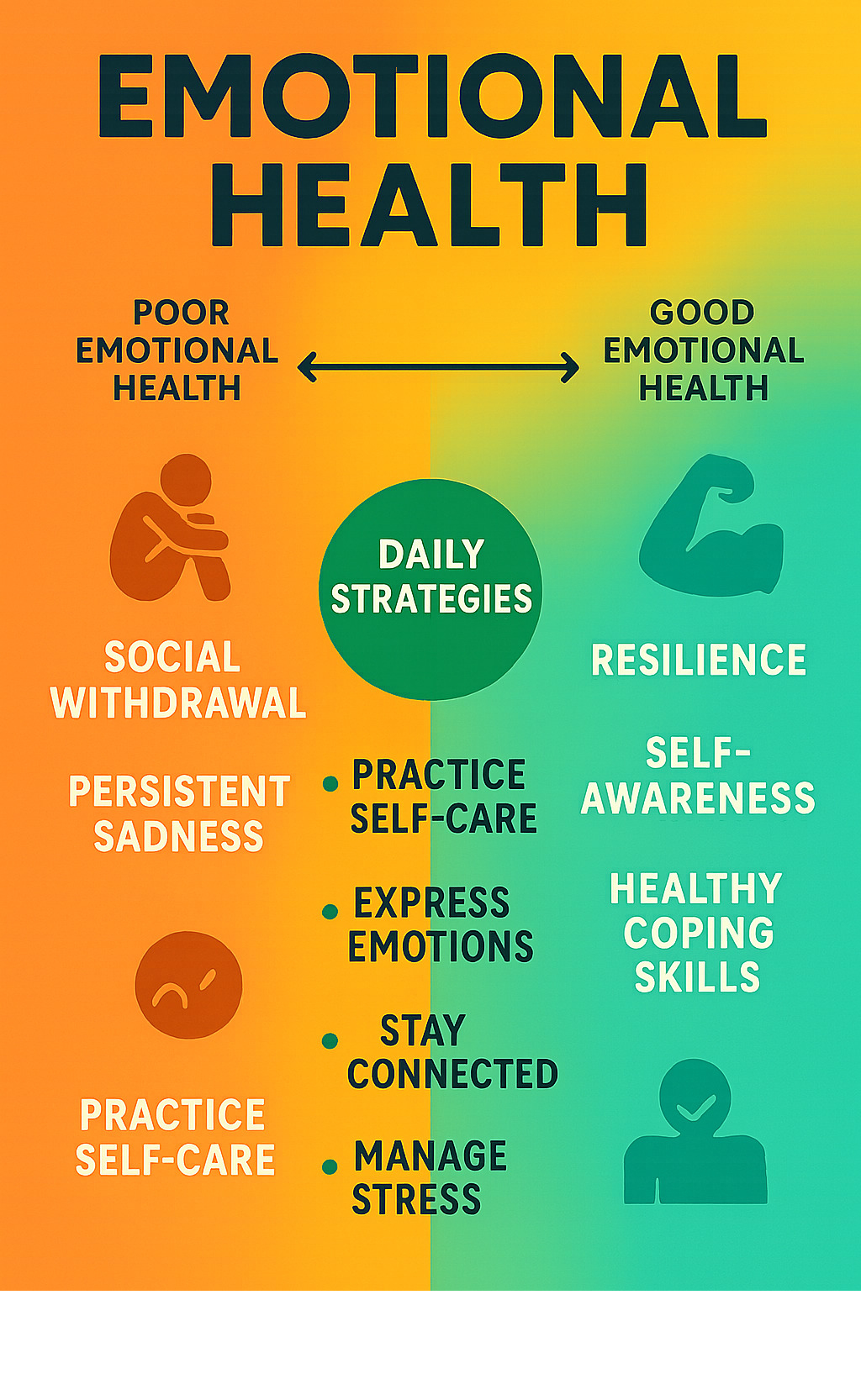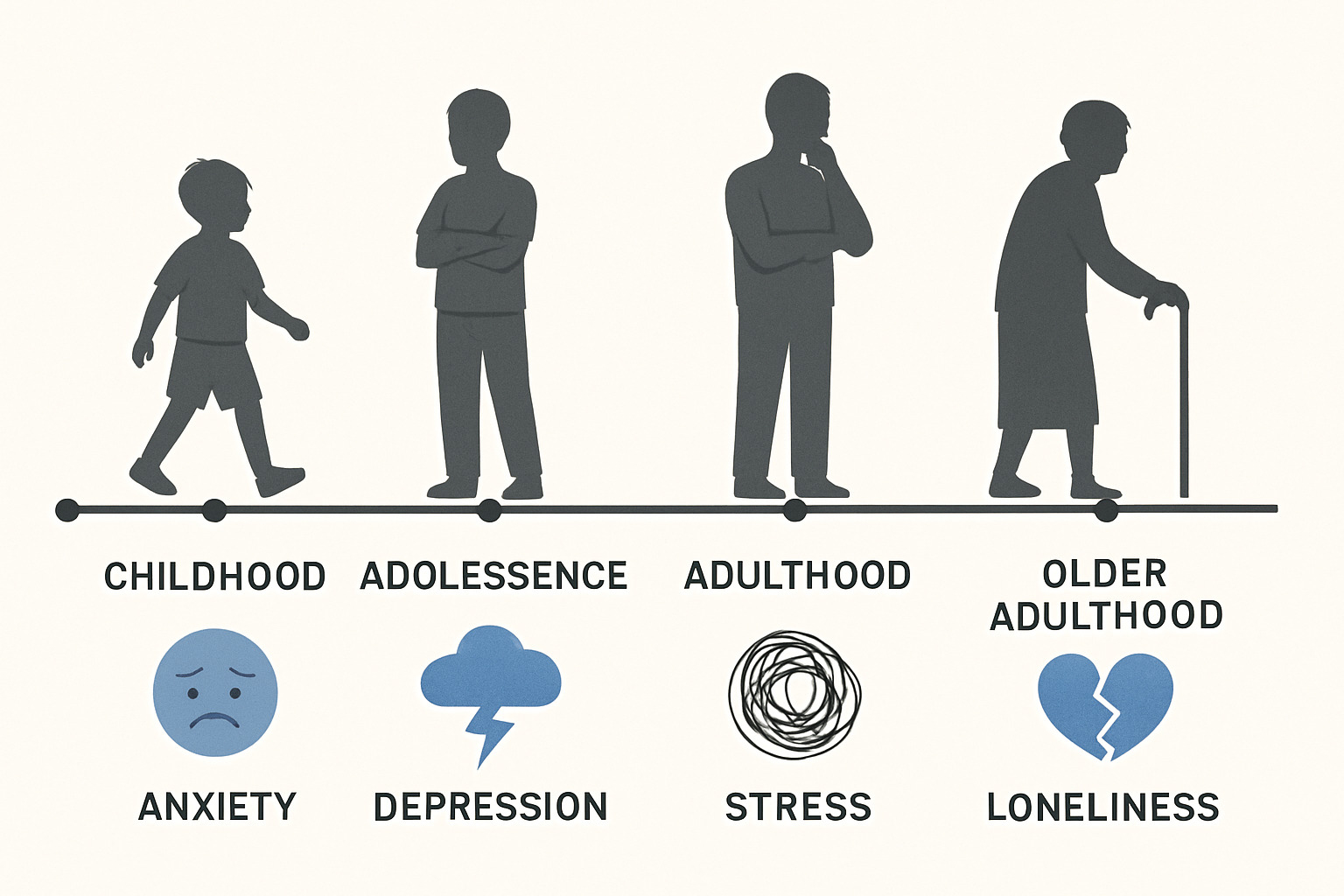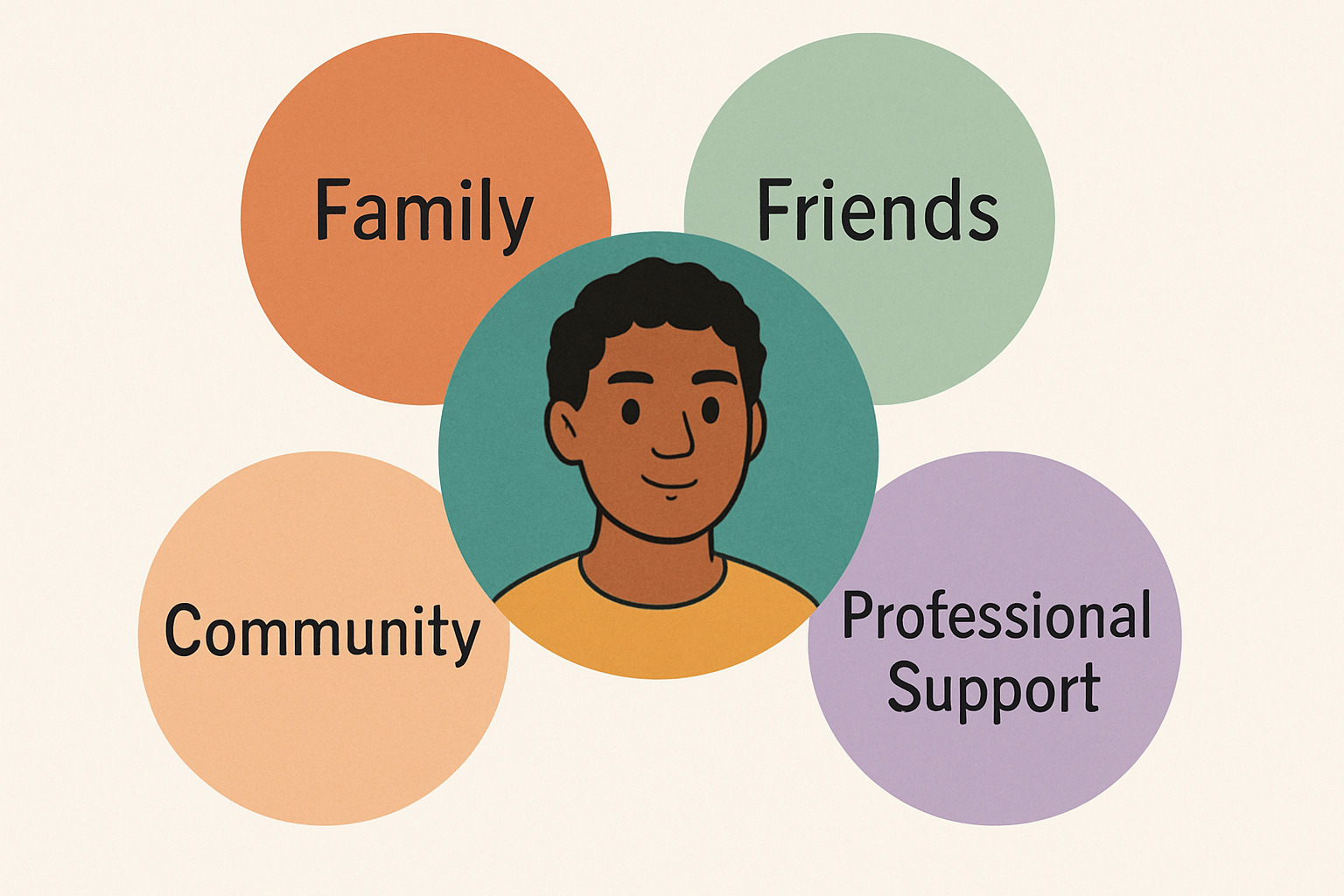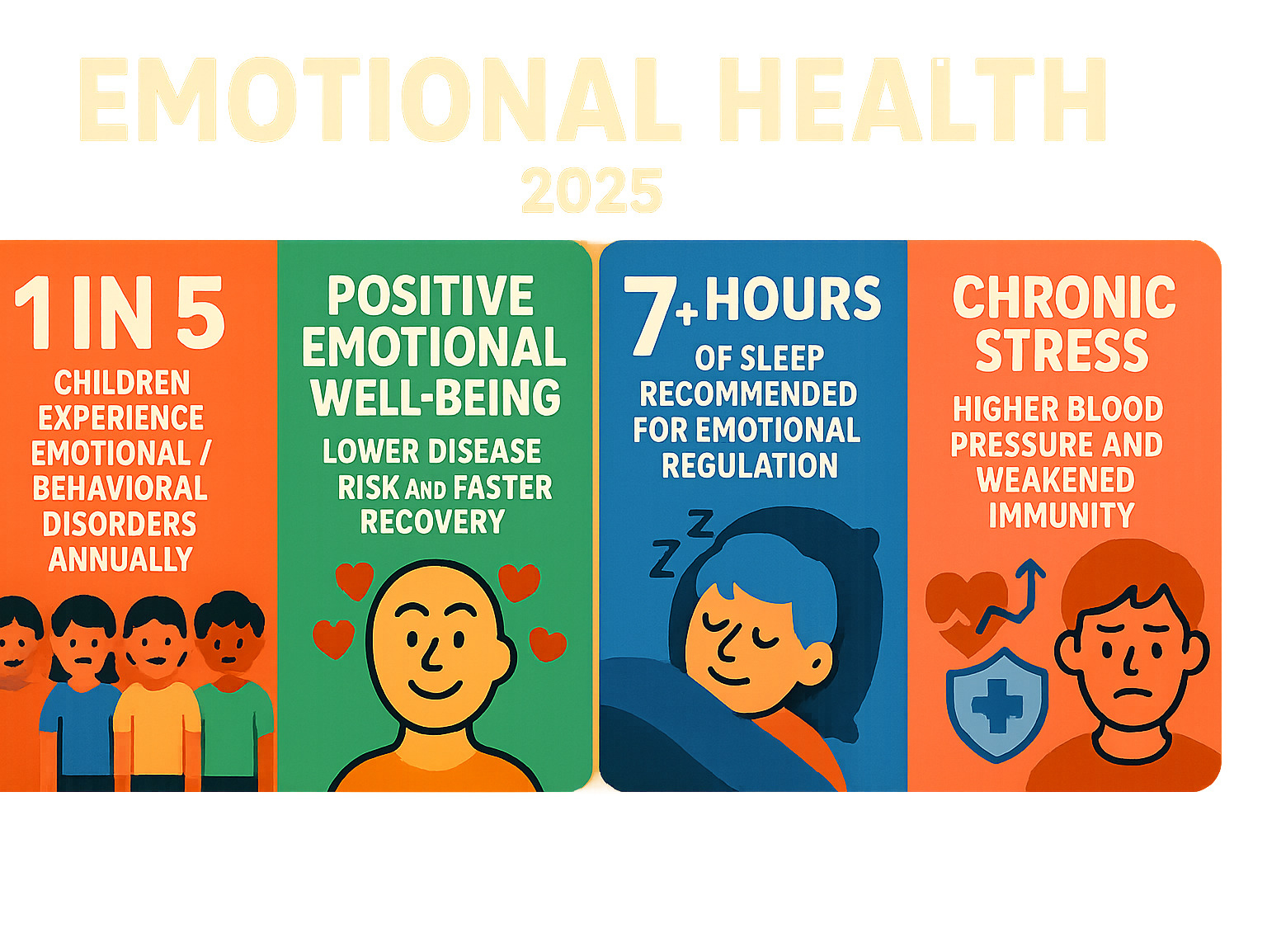What Emotional Health Really Means for Your Daily Life
Emotional health is your ability to understand, accept, and manage your feelings while coping with life’s ups and downs. It’s not about being happy all the time – it’s about having the skills to bounce back from setbacks and handle both positive and negative emotions in healthy ways.
Quick Answer: What is Emotional Health?
- Awareness: Recognizing your emotions as they happen
- Acceptance: Not judging yourself for having difficult feelings
- Management: Using healthy ways to cope with stress and challenges
- Resilience: Bouncing back from tough times and setbacks
- Balance: Maintaining perspective during both good and bad experiences
Think of emotional health like physical fitness – it’s something you can strengthen with practice. According to research from the CDC, people with positive emotional well-being have lower risk of disease and recover faster when they do get sick.
Your emotional health affects everything from your sleep quality and blood pressure to your relationships and work performance. When you’re emotionally healthy, you can:
- Handle stress without it overwhelming you
- Maintain good relationships with others
- Make decisions that align with your values
- Adapt to changes and challenges
But here’s what many people don’t realize: emotional health is different from mental health. While mental health includes your overall psychological state, emotional health specifically focuses on how you process and express feelings.
Poor emotional health shows up in ways like persistent sadness, social withdrawal, or using unhealthy coping methods. The good news? Research shows that emotional wellness is a skill you can develop at any age.

Simple guide to emotional health:
Understanding Emotional Health
When you wake up feeling anxious about a big presentation or find yourself laughing with friends over coffee, you’re experiencing your emotional health in action. It’s essentially your ability to recognize what you’re feeling, accept those emotions without beating yourself up, and handle life’s curveballs with grace.
Emotional health isn’t about putting on a happy face all the time – that would be exhausting! Instead, it’s about developing the skills to steer whatever emotions come your way, whether that’s excitement about a new opportunity or grief over a loss.
What Is Emotional Health?
Think of emotional health as having three superpowers: awareness, acceptance, and coping skills. When these work together, you become someone who can handle life’s roller coaster without getting completely thrown off track.
Awareness means you can actually identify what you’re feeling in the moment. Instead of just knowing something feels “off,” you might recognize, “Oh, I’m feeling overwhelmed because I have too much on my plate today.”
Acceptance is where many of us struggle. It’s about letting yourself feel angry, sad, or scared without immediately thinking there’s something wrong with you. Emotionally healthy people don’t try to stuff down difficult feelings – they acknowledge them as part of being human.
Coping skills are your toolkit for managing emotions. Maybe you call your sister when you’re stressed, take a walk when you’re angry, or write in a journal when you’re confused. The key is having healthy strategies rather than turning to things that might hurt you in the long run.
Research from the Scientific research on emotional wellness shows that emotional wellness is really about successfully handling life’s stresses and adapting to changes.
Emotional Health vs. Mental Health
Here’s something that trips up a lot of people: emotional health and mental health aren’t the same thing, even though they’re definitely connected.
| Aspect | Mental Health | Emotional Health |
|---|---|---|
| Scope | Broader – includes psychological, emotional, and social well-being | Focused specifically on feelings and emotional responses |
| Function | Processing thoughts, making decisions, handling stress | Expressing and managing emotions effectively |
| Measurement | May involve clinical assessments and diagnoses | Often assessed through self-awareness and coping abilities |
| Treatment | May require professional intervention or medication | Can often be improved through lifestyle changes and self-care |
Mental health is like the big umbrella that covers your overall psychological well-being – how you think, make decisions, and handle stress. Emotional health is more specific – it’s all about how you deal with feelings and express them in healthy ways.
You can work on your emotional health even if you’re dealing with mental health challenges. Someone managing depression might still develop amazing emotional awareness and learn fantastic coping strategies. The two definitely influence each other, but recognizing them as distinct areas means you have more specific ways to take care of yourself.
Why Emotional Health Matters for Mind and Body
Your emotional health doesn’t just affect how you feel —it has a measurable impact on your body. When chronic stress lingers, your heart rate climbs, muscles tense, and stress hormones like cortisol flood your system. Over time, as shown in Scientific research on stress and hypertension, this can literally rewire your cardiovascular system, leading to higher blood pressure and greater risk of heart disease.
People who nurture emotional wellness enjoy steadier blood pressure, stronger immunity, and deeper, restorative sleep. They also think more clearly and maintain healthier relationships because their mind and body aren’t stuck in fight-or-flight mode.
Ignore emotional health, however, and the reverse happens: sleep quality drops, productivity falters, and social support shrinks—exactly when you need it most. The good news is that every step you take toward better emotional wellness sends a positive ripple through your entire body.

Spotting the Signs: Good vs. Poor Emotional Health
Learning to recognize the patterns of healthy versus struggling emotional health is like developing an early warning system for your overall well-being. The good news? Most of us can learn to spot these signs with a little practice and self-awareness.
When your emotional health is thriving, you’ll notice some beautiful patterns in your daily life. You wake up with a general sense of optimism – not unrealistic positivity, but a grounded belief that you can handle whatever comes your way. You have resilience when life throws curveballs, bouncing back from disappointments without getting stuck in negative spirals for weeks.
People with good emotional health maintain a clear sense of purpose. They know what matters to them and can make decisions that align with their values, even when it’s difficult. They express their feelings appropriately – getting excited about good news, feeling sad during losses, and working through anger without letting it consume them.
But when emotional health starts to slip, the warning signs often show up gradually. Persistent sadness that lasts more than a couple of weeks is one red flag. We’re not talking about normal grief after a loss or disappointment after a setback – this is a heavy feeling that seems to settle in and stay.
Irritability that feels out of proportion to daily annoyances is another signal. If you find yourself snapping at loved ones over minor things or feeling constantly on edge, your emotional health might need attention. Social withdrawal is particularly telling – when you start avoiding friends, skipping activities you used to enjoy, or making excuses to stay home repeatedly.
Some people notice changes in their basic daily routines. Sleep patterns shift dramatically – either sleeping much more than usual or lying awake for hours. Appetite changes, difficulty concentrating at work, or substance misuse as a way to cope are all signals that emotional health is struggling.
The most serious warning signs include thoughts of self-harm or neglecting personal care entirely. If you or someone you know experiences these symptoms, it’s crucial to reach out for professional support immediately.
For a deeper understanding of these patterns, our guide on how to Define Mental Health offers additional insights into recognizing when emotional struggles might indicate broader mental health concerns.
Everyone experiences difficult emotions – that’s completely normal and healthy. The key difference is duration and impact. Temporary emotional struggles are part of life, but when feelings persist for weeks and significantly interfere with work, relationships, or daily functioning, it’s time to seek additional support.
Life Stages & Common Challenges

Emotional health evolves right alongside us, and each life stage brings fresh stressors and opportunities.
Children & Adolescents
About 1 in 5 U.S. youngsters experience a mental, emotional, or behavioral disorder every year. Academic pressure, social media comparison, and the physical changes of puberty can all strain a developing nervous system. Consistent routines, open-ended questions, and simply listening without rushing to fix things give kids the space they need to label and work through feelings (see the CDC overview).
Adults in the Workforce
Career demands, caregiving, and finances often collide in adulthood. Clear boundaries between work and home, scheduled downtime, and regular movement help prevent burnout. Even brief check-ins with trusted friends or mentors maintain perspective when responsibilities feel endless.
Older Adults
Later life may bring chronic illness, bereavement, or retirement-related identity shifts. Staying socially engaged—through volunteering, community centers, or hobbies—buffers loneliness and keeps purpose alive. It’s never too late to learn new coping skills or seek professional guidance.
Strategies to Strengthen Your Emotional Health Daily
Improving emotional health is less about grand gestures and more about daily habits. Think of it as tending a garden—small, consistent actions make everything flourish.
- Daily check-in – Pause, name what you’re feeling, and note the trigger.
- Gratitude – Each night write down three things you appreciated; this trains the brain to spot positives faster.
- Move your body – A 10-minute walk lowers stress hormones and clears mental fog.
- Sleep & nutrition – Aim for 7+ hours of rest and balanced meals to stabilize mood and energy.
For more ideas, see our Wellness Practice Tips.
Mindfulness & Stress Management
Quick tools you can use anywhere:
- 4-5 breathing: inhale for 4, exhale for 5, ten times.
- Body scan: mentally sweep from toes to head, releasing tension.
- Mindful walking: focus on colors, sounds, and textures during a short stroll.
- Yoga: combines movement, breath, and presence.
Social Connections & Support Networks
Strong relationships act as an emotional safety net. Join interest groups, volunteer, or schedule regular catch-ups with friends and family. Express gratitude, practice active listening, and set boundaries to protect your energy.

Building Emotional Resilience
Resilience isn’t about being tough; it’s the ability to bend without breaking.
- Positive mindset: challenge the inner critic.
- Goal setting: break big dreams into small wins.
- Problem-solving: focus on what you can control.
- Self-compassion: treat yourself like a good friend.
When to Seek Professional Help & Trusted Resources
Sometimes the journey to better emotional health requires more support than we can provide ourselves. And that’s completely okay – recognizing when you need help is actually a sign of emotional intelligence and strength.
There are clear moments when professional support becomes essential. If you’ve been experiencing persistent feelings of sadness, anxiety, or hopelessness for more than two weeks, it’s time to reach out. The same goes for any thoughts of self-harm or suicide – these require immediate professional attention.
Pay attention to significant changes in your basic functioning too. When your sleep patterns shift dramatically, your appetite disappears or increases substantially, or your energy levels plummet for extended periods, these are your body’s way of signaling distress. If you find yourself unable to function normally at work, school, or in your relationships, professional guidance can help you get back on track.
Sometimes we try to cope with difficult emotions through alcohol or substances, or we withdraw completely from activities and people we once enjoyed. These patterns often develop gradually, which is why it’s important to check in with yourself regularly about your coping strategies.
Professional support comes in many forms, each designed to meet different needs. Therapists and counselors specialize in talk therapy and can teach you personalized coping strategies. If medication might be helpful alongside therapy, psychiatrists can provide that medical perspective. Support groups offer the unique benefit of connecting with others who truly understand your experiences.
For immediate support during crisis moments, crisis hotlines provide trained professionals available 24/7. Many workplaces also offer Employee Assistance Programs that provide confidential counseling services at no cost.
The good news is that finding help has become more accessible than ever. The National Suicide Prevention Lifeline is now simply 988 in the US, making it easier to remember during difficult moments. For text-based support, you can reach the Crisis Text Line by texting HOME to 741741.
The American Psychological Association’s therapist locator helps you find qualified professionals in your area, while local NAMI (National Alliance on Mental Illness) chapters provide community-based support and education. The NIH Emotional Wellness Toolkit offers excellent self-help resources that complement professional care.
Seeking help is like going to the doctor for a physical injury – it’s practical self-care, not a character flaw. Mental health professionals are trained to help you develop the skills and insights that support long-term emotional health.
If you’re looking for additional ways to nurture yourself while seeking professional support, our guide on Self-Care Sundays offers gentle practices that can complement therapeutic work.

Frequently Asked Questions about Emotional Health
How is emotional health different from mental illness?
Emotional health is the everyday skill of noticing, accepting, and managing feelings. Mental illness refers to clinical conditions like depression or anxiety that usually require professional treatment. You can work on emotional health whether you have a diagnosis or not—think of it as fitness for your feelings.
Can I improve emotional health if I already have a diagnosis?
Absolutely. Mindfulness, exercise, sleep, and social support are standard parts of many treatment plans. Partner with your care team to blend these habits with any therapy or medication you use.
What quick practices help when I feel overwhelmed?
Try the 5-4-3-2-1 grounding technique to anchor in the present, or take ten slow breaths with longer exhales. A brief walk or a splash of cool water on your face can also reset your nervous system. When in doubt, reach out to someone you trust.
Conclusion
Your journey toward better emotional health doesn’t end here – it’s actually just beginning. Think of everything we’ve covered as your toolkit for building a more resilient, aware, and balanced version of yourself. The beautiful truth is that emotional wellness is a skill you can develop and strengthen throughout your entire life.
We’ve seen how emotional health touches every corner of your existence. When you’re emotionally balanced, your body responds with lower blood pressure, stronger immunity, and better sleep. Your relationships flourish because you can communicate more clearly and show up authentically.
At Beyond Beauty Lab, we know that real beauty starts from within. That inner glow you see in truly radiant people? It often comes from someone who has learned to understand and accept their emotions while building the resilience to handle whatever life throws their way.
Here’s what matters most as you move forward: start small and be consistent. You don’t need to master meditation or completely overhaul your life overnight. Maybe today you simply notice when you’re feeling stressed without judging yourself for it. Tomorrow, you might try that 5-4-3-2-1 grounding technique when you feel overwhelmed.
Seeking help is a sign of wisdom, not weakness. Just as you’d see a doctor for a broken bone, mental health professionals are there to support your emotional wellness journey. Whether you’re dealing with everyday stress or more significant challenges, you deserve support.
The connection between your emotional well-being and your overall health is profound and scientifically proven. When you invest in your emotional health, you’re not just improving how you feel – you’re creating a foundation for physical vitality, meaningful relationships, and authentic confidence that radiates outward.
For a deeper dive into how emotional wellness fits into your complete health picture, check out our Ultimate Guide to Wellness and Well-Being. You’ll find how all the pieces of wellness work together to create the vibrant, resilient life you deserve.
Your emotions are not something to fix or suppress – they’re information, guidance, and part of what makes you beautifully human. By honoring and skillfully working with your emotional health, you’re choosing to live more fully, love more deeply, and shine more brightly in this world.







